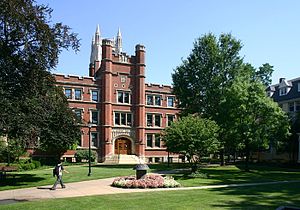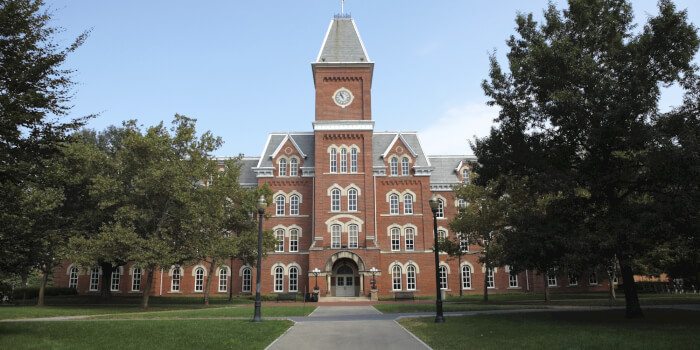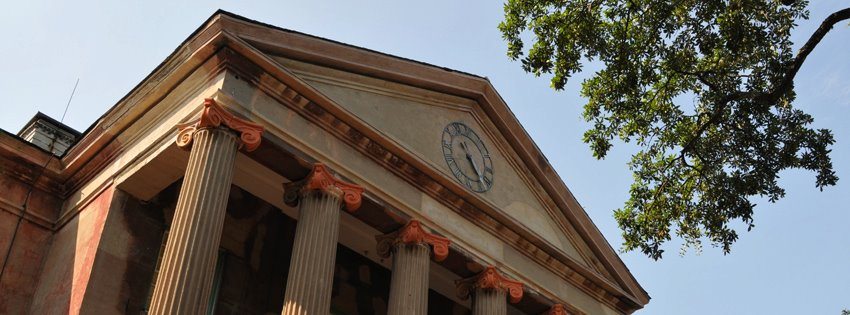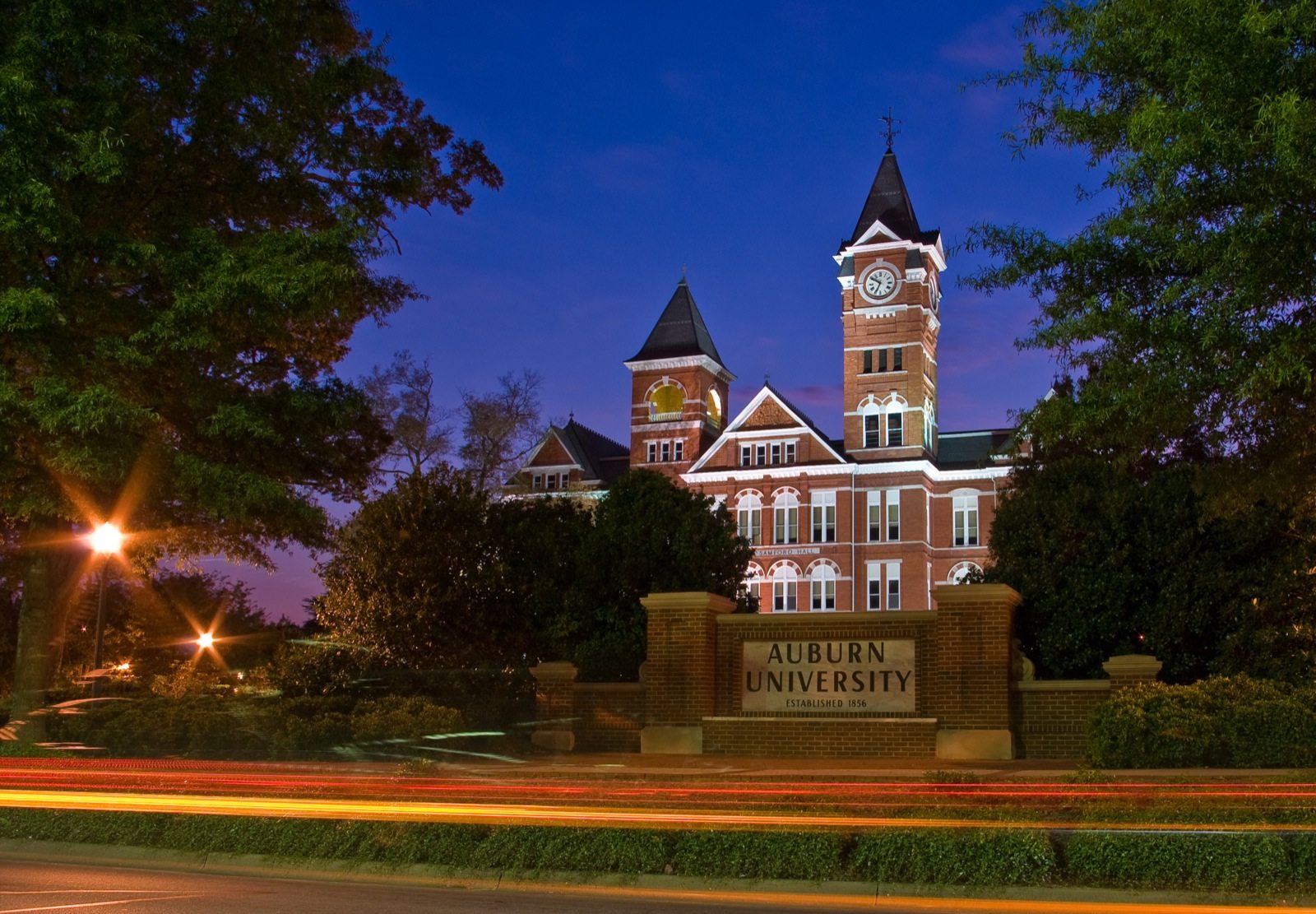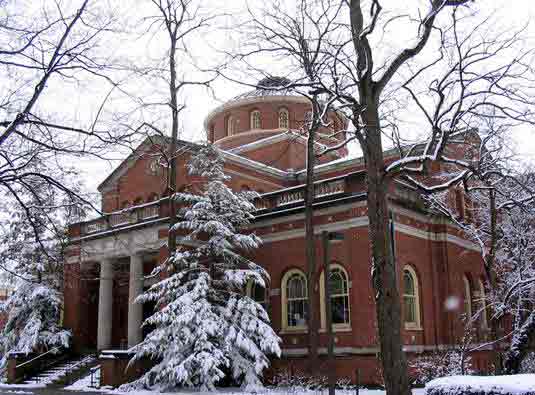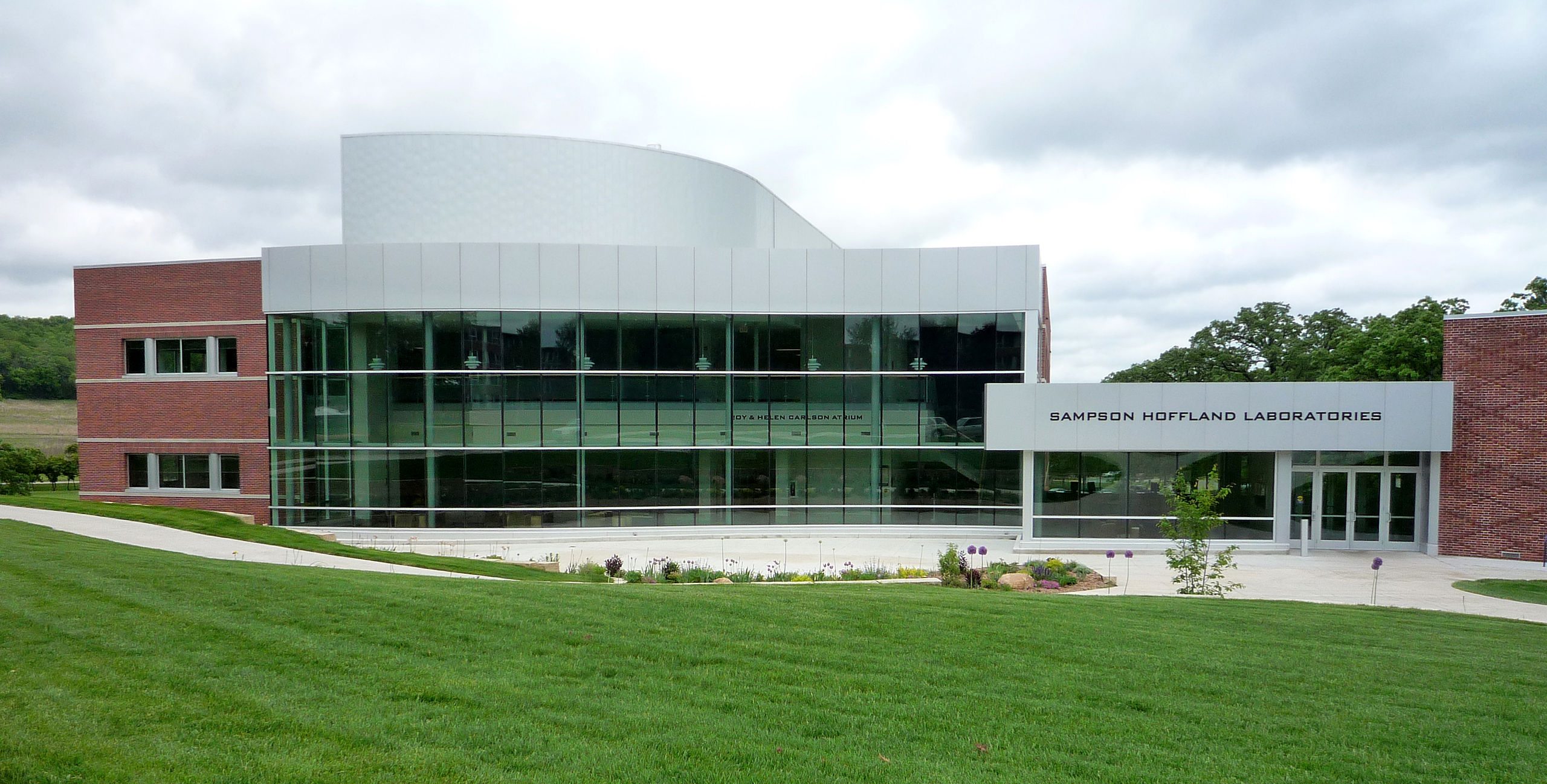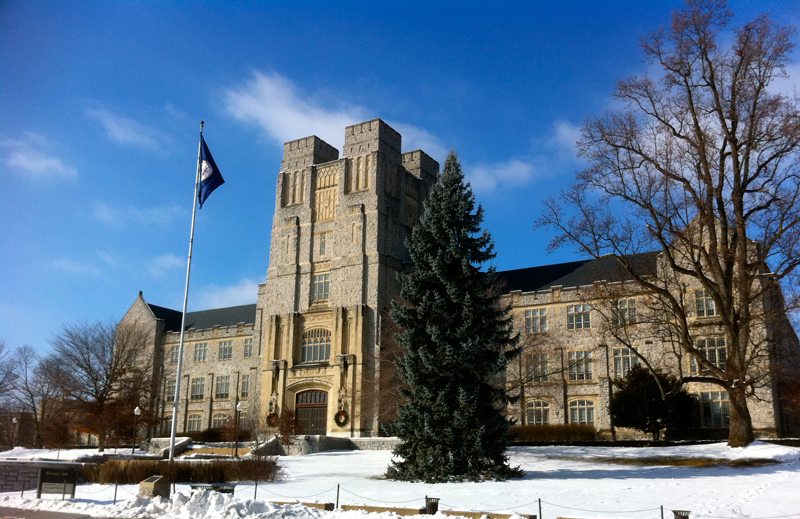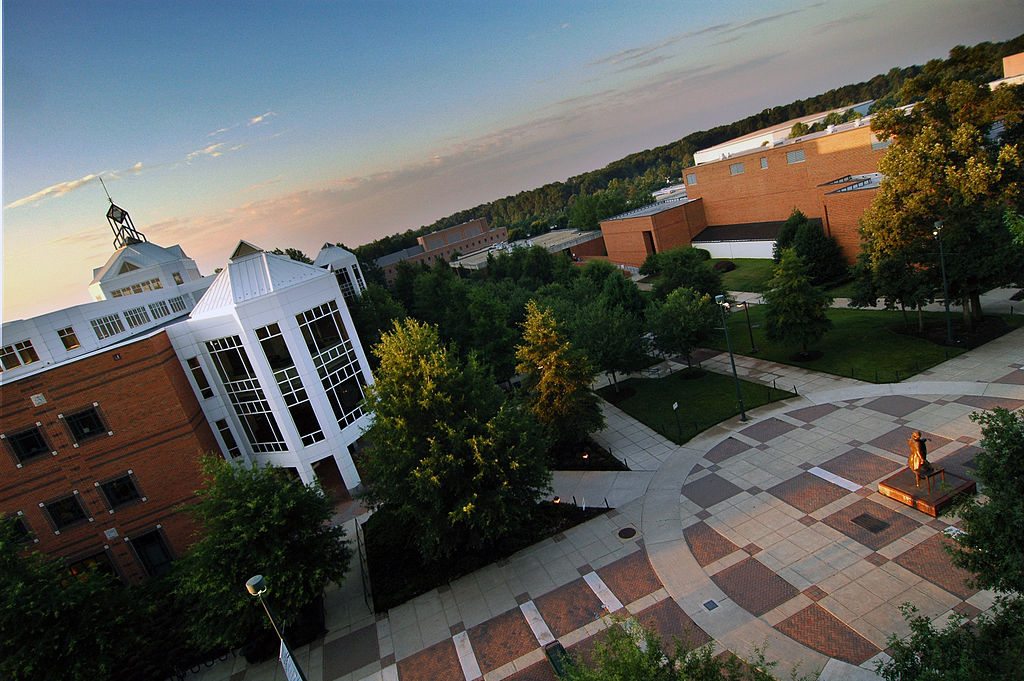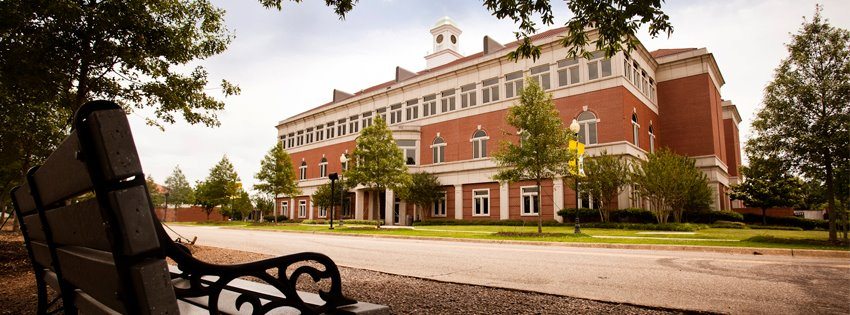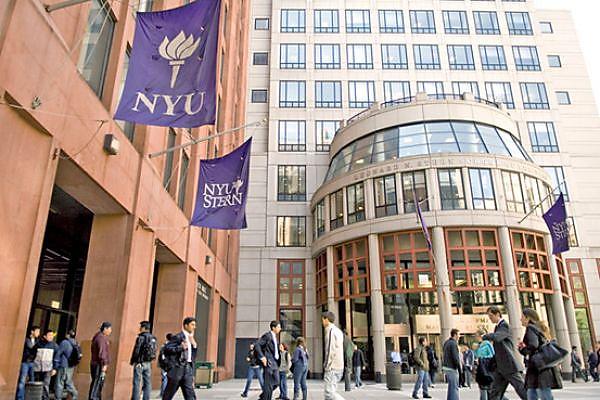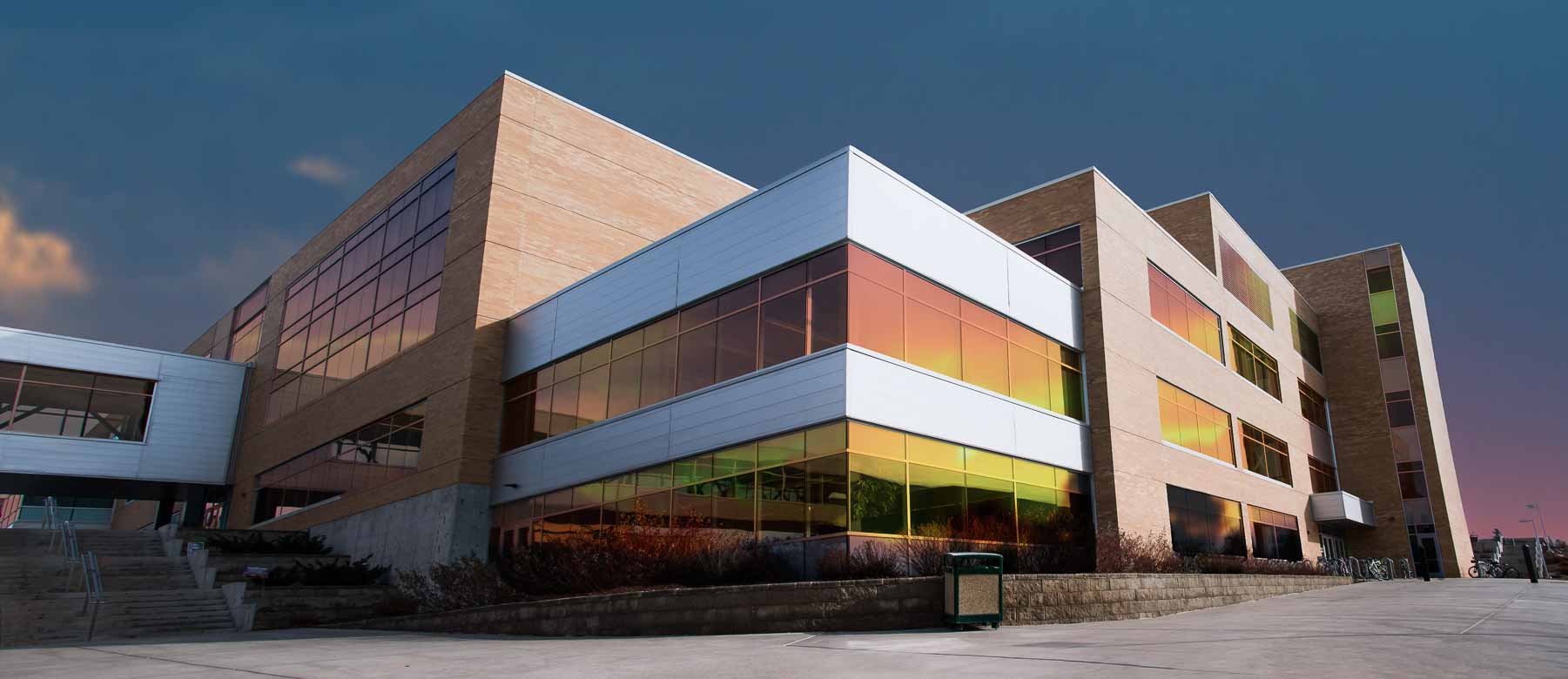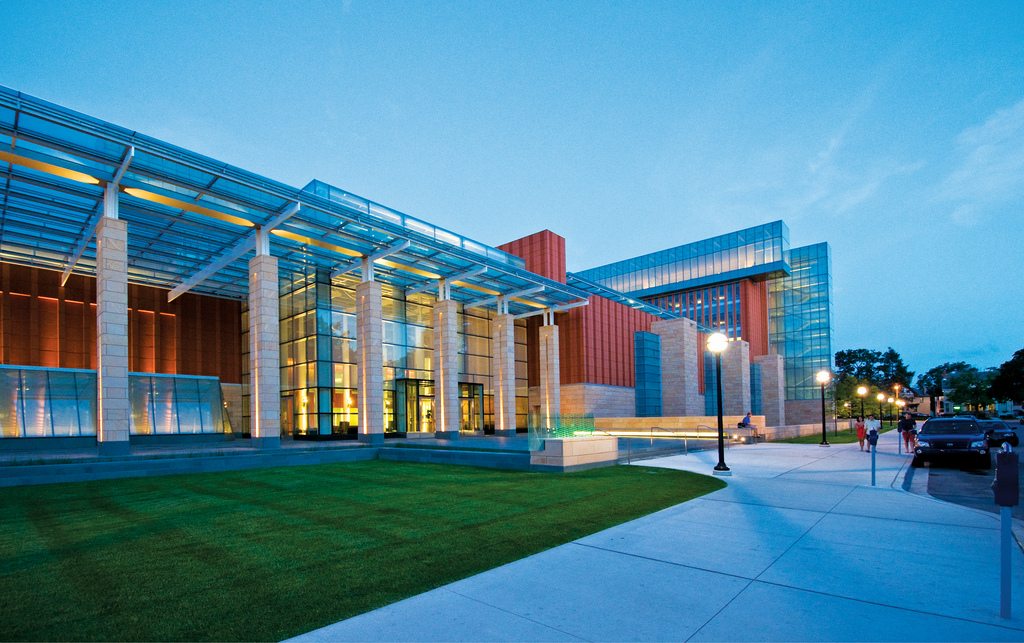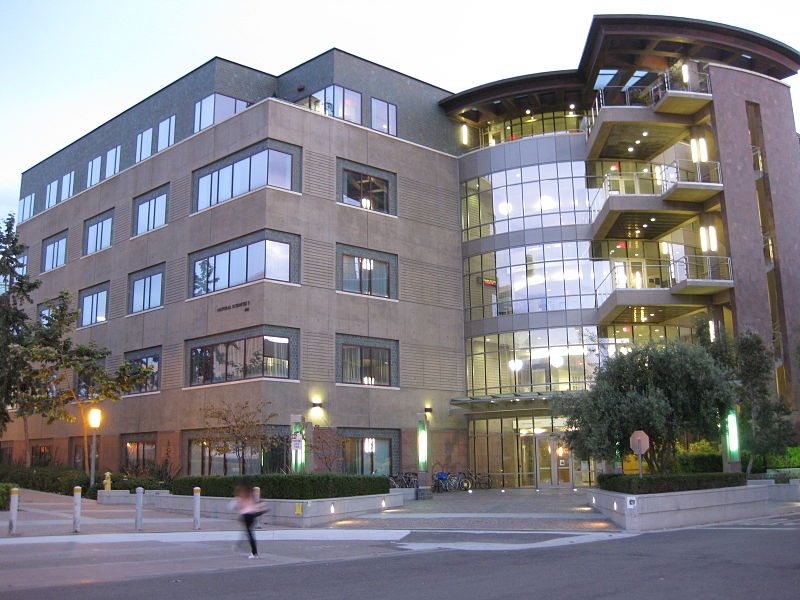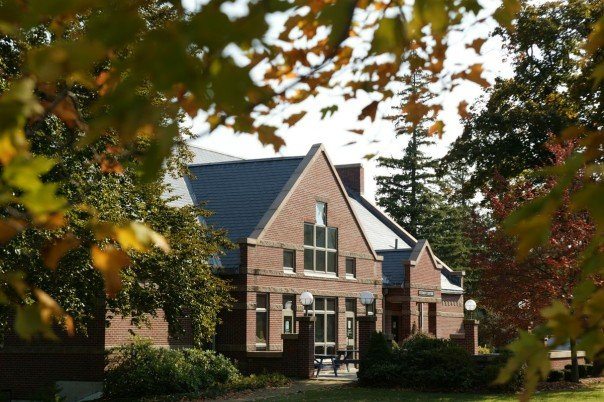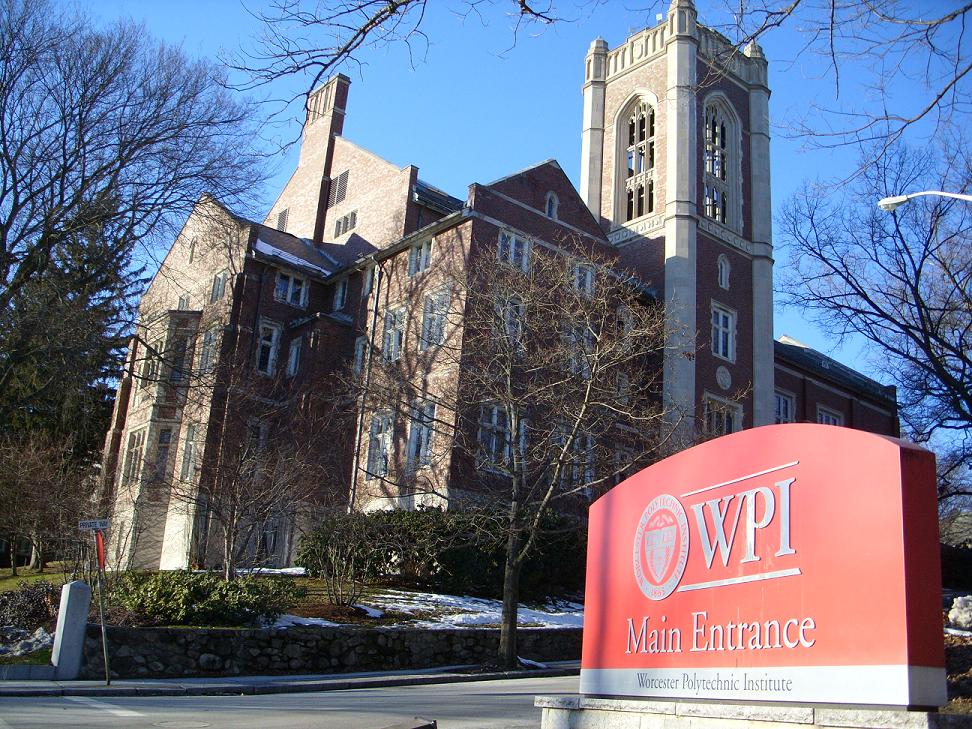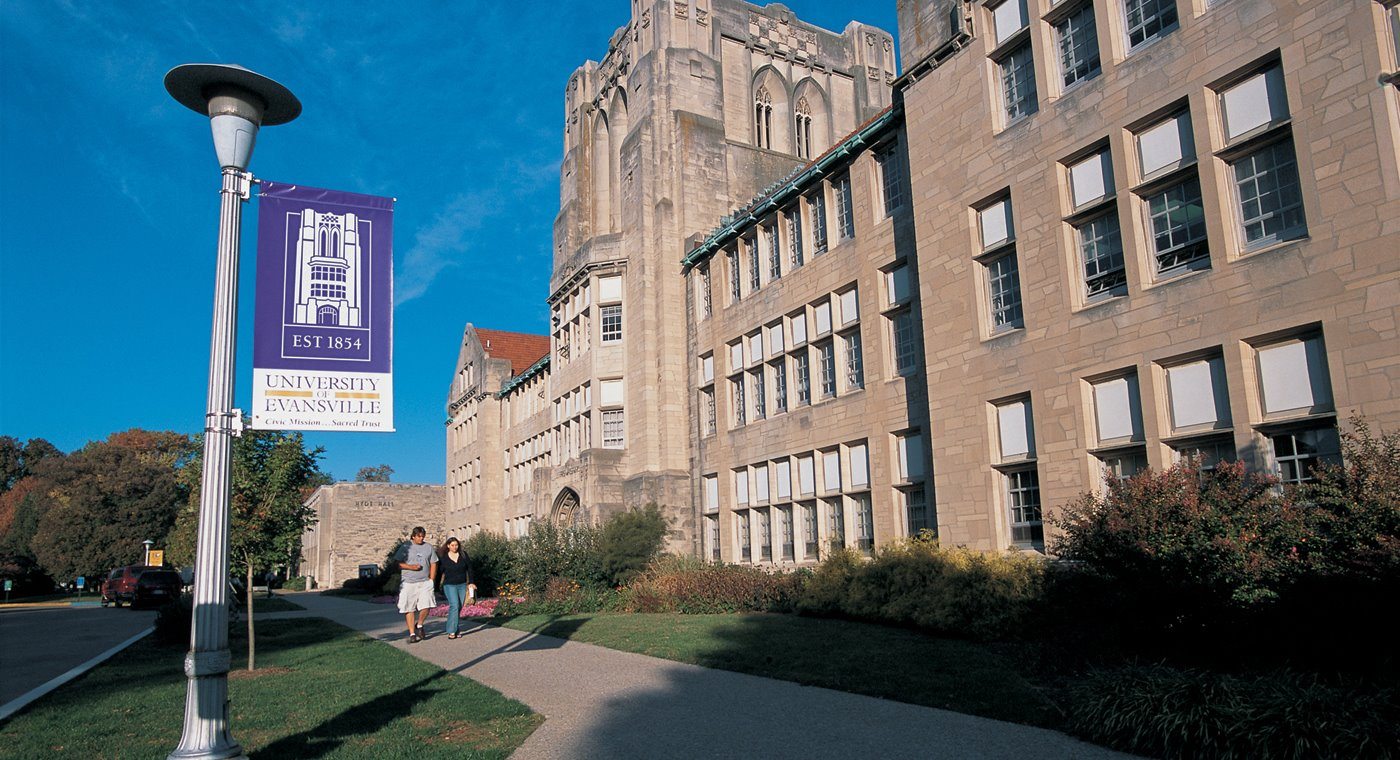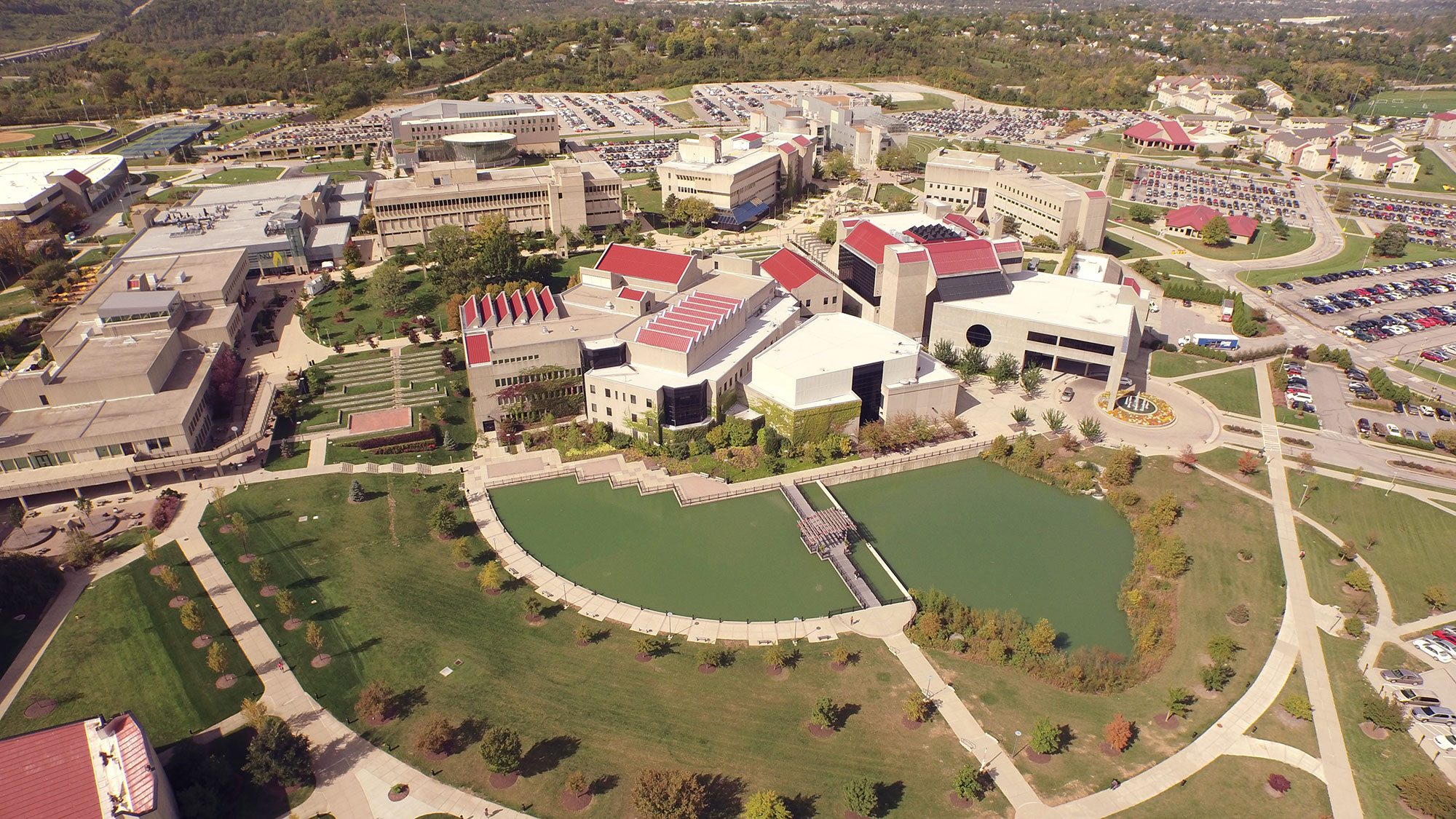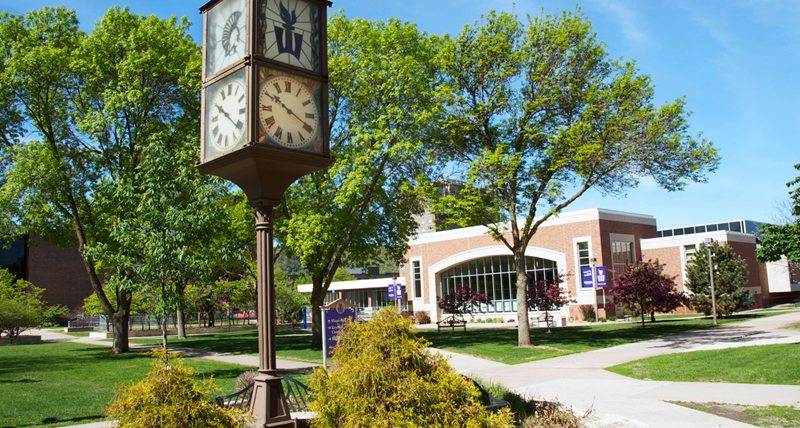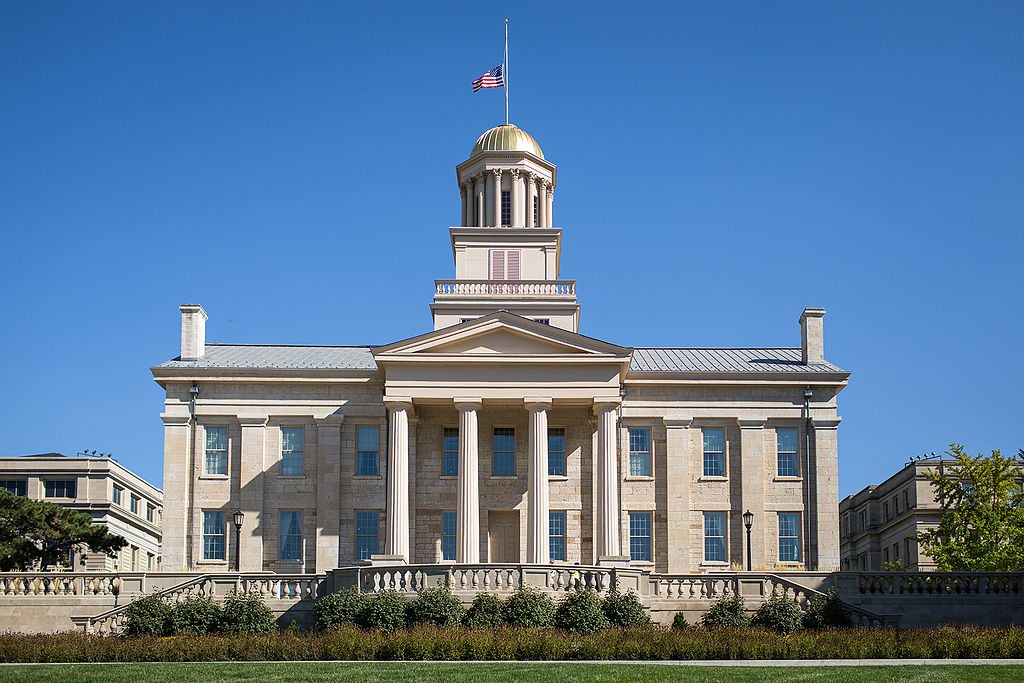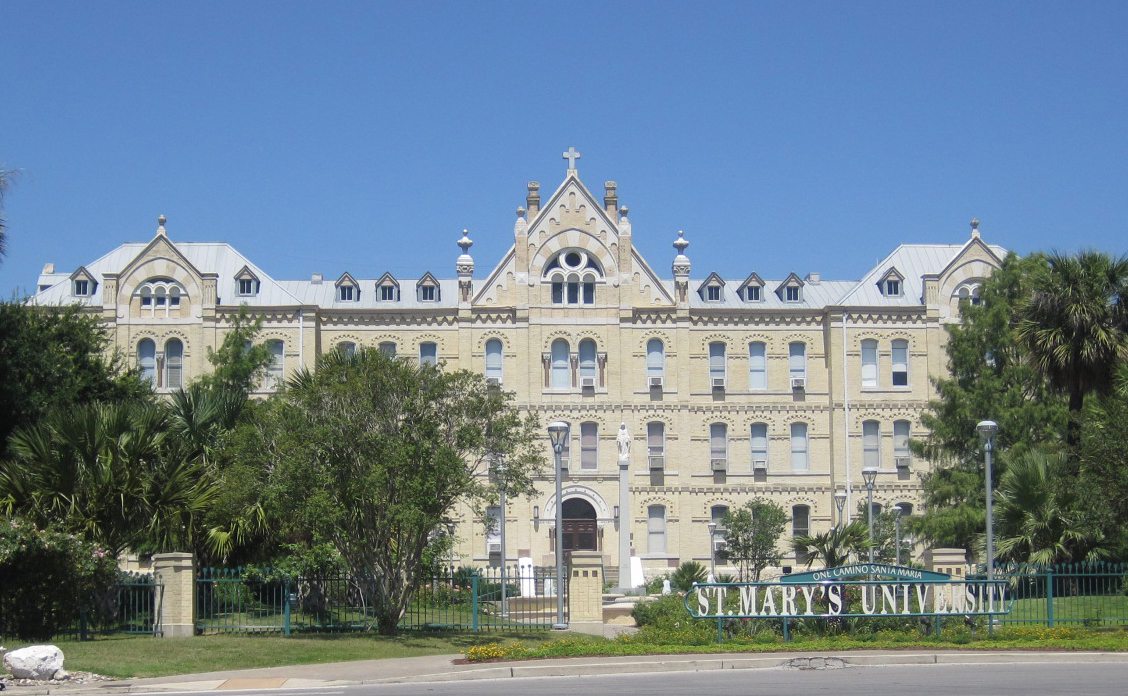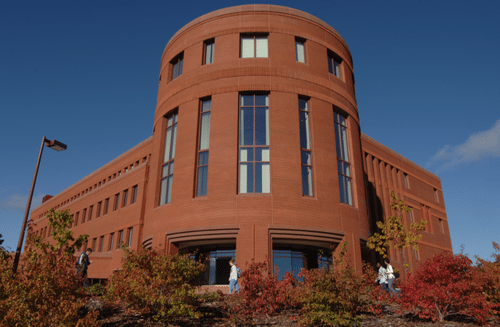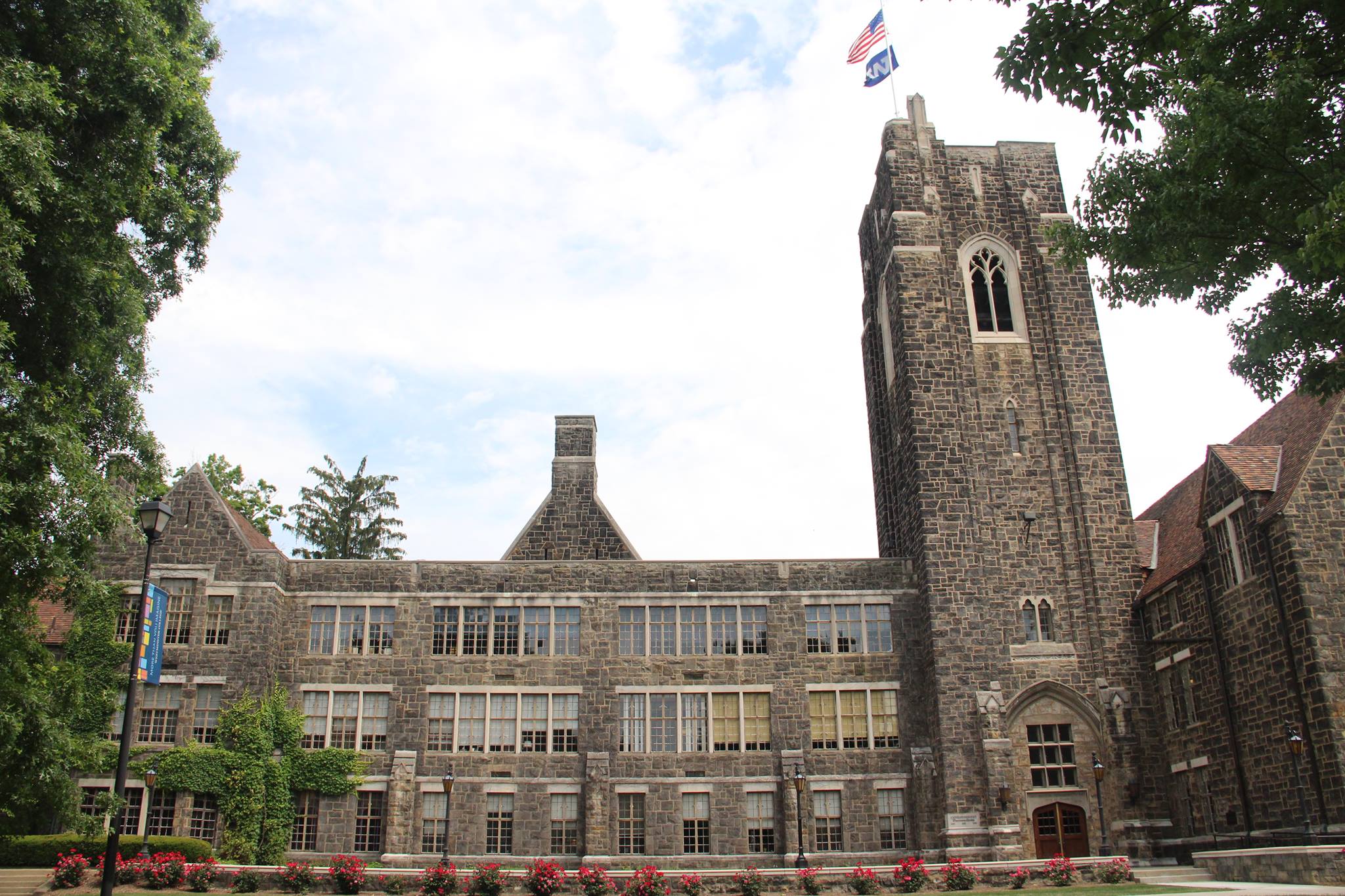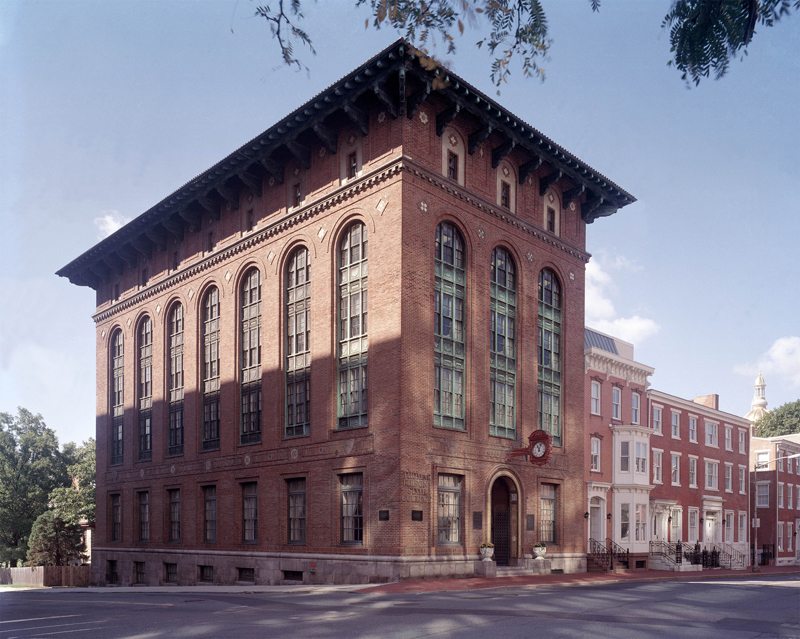SPECIALIZATIONS
More data has been created in the last several years than in the previous 5,000 years of human history combined. According to IBM, 2.5 quintillion bytes of data are created every day.
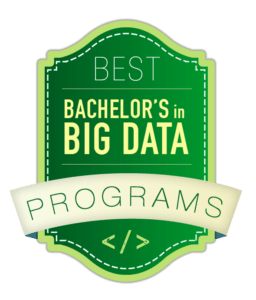
This data comes from every imaginable source: digital pictures and videos, social media posts, shopping transactions, search queries, GPS signals. What happens to all that information?
In most cases: nothing. Companies and organizations are quickly realizing that they have vastly more data than they know what to do with. In fact, only 0.5 percent of the world’s data has been analyzed.
That’s why right now is the ideal time to get started in the world of big data.
The McKinsey Global Institute estimates that the United States alone will face a shortage of 140,000 to 190,000 professionals who are able to analyze and interpret big data. These data scientists, who can derive meaningful knowledge from massive amounts of unstructured data, will be in high demand in a huge variety of industries. (The Harvard Business Review called data scientist “the sexiest job of the 21st century.”)
Big data can be used to predict disease outbreaks, detect credit card fraud, measure consumer engagement, improve education outcomes, identify market opportunities, and optimize natural resource useage. In short, big data has the potential to transform nearly every industry in the modern world.
To meet the growing need for highly capable big data analysts, more and more universities are offering programs in Data Analytics or Data Science. These interdisciplinary programs usually incorporate coursework in statistics, computer science, and mathematical modeling.
Often, big data programs also teach students effective methods for writing and public speaking. This empowers students to clearly communicate the results of their findings.
As this emerging field continues to gain momentum, college students have an ever-increasing number of choices for a degree in data science. To help you decide which university has a program that’s right for you, we’ve compiled this ranking of the very best bachelor’s degree programs in big data.
What are the best bachelor’s degree programs in Big Data?
There are a large number of factors that college students might look at when deciding where to apply. (In addition to residential Bachelor’s programs, you might also consider our list of the Best Online Big Data Degrees.)
In the same way, we look at a whole host of different aspects when we compile these rankings, so we can provide a comprehensive, big-picture assessment of each school.
Using information from individual college websites, the National Center for Education Statistics’ IPEDS database, PayScale, and U.S. News & World Report, we carefully assess each school for institutional excellence. The institutional excellence measurement incorporates data points such as incoming student test scores, graduation rate, student-to-faculty ratio, overall reputation among alumni and employers, endowment size, and other important measurements of what each school has to offer its students.
Similarly, schools are also ranked on student success. This measurement takes into account metrics like projected early career salary for graduates, tuition costs, student indebtedness after graduation, and average financial aid packages.
Taken altogether, these factors are used to determine which colleges and universities offer the best Big Data bachelor’s degrees in the nation.
1. Case Western Reserve University
Overview
With an overall ranking of 37th among national universities from U.S. News & World Report, Case Western Reserve University is one of the most well-respected institutions in the country. The university was ranked 12th by The Washington Monthly for colleges that contribute to the national good. Case Western is especially celebrated for its engineering, medicine, law, and computer science and big data programs.
Program Features
The Data Science and Analytics program was developed through a partnership between Case Western Reserve University and the Business-Higher Education Forum. The degree is granted through the School of Engineering’s Department of Electrical Engineering and Computer Science. Students in the program will complete core coursework in the following areas:
- Mathematical modeling of data sources
- Informatics
- Data analytics
- Visual analytics and user experiences
- A capstone project that requires project-based applications of learning
Notables
The Data Science and Analytics degree is designed to meet the demands of a variety of industries. Accordingly, the coursework will include analysis tools and applications in allied technical fields such as biology, physics, or engineering. Students will also have the opportunity to specialize in the area of health, energy, or manufacturing and production. The program is well-known for its abundant opportunities for co-op assignments or internships with industry partners.
2. Ohio State University-Main Campus
Overview
Routinely ranked among the top 20 public universities in the nation, Ohio State University’s main campus in Columbus has been a hub of intellectual activity and innovation for nearly 150 years. OSU is particularly known as a leader in medicine: The Wexner Medical Center has been recognized among the best hospitals in the nation by U.S. News & World Report for 25 consecutive years. The extensive research initiatives and industry partnerships at OSU are especially valuable for data analytics students looking to apply their skills in real-world settings.
Program Features
OSU offers a Bachelor of Science in Data Analytics, which is presented through the College of Arts and Sciences. The program emphasizes a combination of core skills in mathematics, computer science, and statistics, along with highly developed critical thinking, problem-solving, and communication skills. Coursework in the Data Analytics degree track includes:
- Introduction to Database Systems
- Bayesian Analysis and Statistical Decision Making
- Systems Modeling and Optimization for Analytics
- Visual Analytics and Sensemaking
Notables
Within the Data Analytics bachelor’s degree program, students will choose an area of specialization. Available options include Biomedical Informatics, Business Analytics, Computational Analytics, and Social Science Analytics. Every year, OSU participates in the American Statistical Association (ASA) DataFest, a collaborative competition where undergraduates work together on a large data analysis that is beyond the scope of typical classroom projects.
3. Elon University
Overview
Located in central North Carolina, Elon University is a private institution with a selective admissions process and a curriculum grounded in the liberal arts and sciences. Over 6,000 students attend EU, where they can enroll in more than 60 undergraduate degree programs. The Computing Sciences program provides students with access to world-class hardware and software, as well as acclaimed faculty members that are leading experts in their fields.
Program Features
Within the Computing Sciences division, Elon University offers both a B.A. and a B.S. in Computer Science. Both of these have a core curriculum in math and computer science courses, while the B.S. program also includes eight hours of a biological or physical science. A minor in Data Science or Computer Science is also available. Students in the Computing Sciences division may take the following courses:
- Data Science and Visualization
- Data Mining and Machine Learning
- Algorithm Analysis
- Design and Analysis of Experiments
Notables
The university boasts an impressive 78 percent four-year graduation rate, which places it in the top 10 percent in the nation among private universities. Computing Sciences students can take advantage of more than 50 software development tools, all of which are updated twice annually. All university computers are replaced every three years. Students can use these resources to participate in the numerous research and independent study opportunities at Elon University.
4. Denison University
Overview
Denison University was founded in 1831 and today carries on its legacy as a private, residential liberal arts institution. The school draws in high-achieving students from all over the country and the world: In the class of 2021, 80 percent of freshmen came from out of state, and the student body represents 40 countries. The Data Analytics major, which began enrolling students in the fall of 2016, is one of the newest degree programs at Denison.
Program Features
Denison’s Data Analytics program builds on the university’s presence as a national leader in computer science, mathematics, and the social sciences. The program is designed to provide a wide breadth of data analysis expertise that can be used for a successful career in finance, marketing, business, public health, education, government, social policy, research, medicine, and law. Required courses for the B.S. in Data Analytics include the following:
- Single Variable or Multivariable Calculus
- Practicum in Data Analytics
- Applied Statistics
- Data Systems
Notables
Denison boasts a 9:1 student-faculty ratio, and 100 percent of professors hold a terminal degree in their field. As a result, students will benefit both from exceptionally experienced and highly accessible faculty. All Data Analytics majors are expected to complete a summer internship, where they will apply their skills in a professional setting.
5. College of Charleston
Overview
Founded in 1770, the College of Charleston is a public liberal arts and science university serving approximately 10,000 undergraduates and 1,000 graduate students. The school features comprehensive academic programs, a vibrant student community, and a faculty of more than 500 dedicated and distinguished teacher-scholars. The campus, located in historic downtown Charleston (and named the most beautiful college campus in America by Travel + Leisure magazine), is home to a world-renowned Data Science degree program.
Program Features
The Data Science program at the College of Charleston was the very first undergraduate degree of its kind to be offered in the United States. Students can pursue one of 14 specializations, including biomechanics, e-commerce, supply chain management, geoinformatics, molecular biology, and sociology. Coursework offered through the Data Science degree includes the following core curriculum:
- Dataset Organization and Management
- Data Structures and Algorithms
- Principles of Artificial Intelligence
- Data Science Capstone
Notables
Students in the Data Science program at College of Charleston have participated in paid internships with IBM, Bibliolife, the Medical University of South Carolina, and other top organizations. The school partners with the University of San Francisco for the Data Science Pathway Program, which provides College of Charleston Data Science graduates with priority admission to the University of San Francisco Master of Science in Analytics program.
6. Auburn University
Overview
Situated on 1,841 acres in Auburn, Alabama, Auburn University is a public research institution with a community of over 28,000 students and 1,200 faculty. More than 140 undergraduate majors are available at Auburn, allowing students plentiful opportunities for cross-curricular research and interdisciplinary experiences. The school offers a robust program in Business Analytics, housed in the university’s acclaimed Harbert College of Business.
Program Features
At Auburn University, students interested in data management and predictive modeling can enroll in the Business Analytics program. This degree track allows students to specialize in a number of areas, including finance, information systems, marketing, logistics, supply chain, and statistics. Besides the core courses in Big Data, Predictive Modeling, and Communicating Quantitative Results In Business, students can choose from a number of analytics-based electives. Available electives include:
- Database Management Systems
- Probability and Statistics
- Business System Logic and Modeling
- Database Server Fundamentals
Notables
Ever since its founding in 2013, the Business Analytics program at Auburn has maintained a 100 percent placement rate for its graduates. This is due in large part to the numerous industry engagement opportunities for undergraduate students. Not only can Auburn undergrads pursue traditional internships and “mini-internships” (between semesters), they’ll also have the chance to participate in corporate visits and job shadowing events.
7. Miami University-Oxford
Overview
In 2017, Miami University-Oxford was recognized by U.S. News & World Report for its “Strong Commitment to Undergraduate Teaching.” It is the highest ranked public university on the list and follows only Princeton in the entire nation for this distinction. Miami University also appears on Kiplinger’s 2017 list of “100 Best Values in Public Colleges” (for the 19th year running). With a campus that the Princeton Review described as “astoundingly beautiful,” there’s no shortage of compelling reasons to come to Miami University-Oxford. The innovative analytics programs in the Department of Statistics are another significant draw for the school.
Program Features
Miami University-Oxford’s Department of Statistics offers an Analytics Co-Major, which is designed to be combined with a primary major. This program provides a framework in the collection and use of big data. Two tracks are available for this program: Business Analytics or Predictive Analytics. Available coursework within these tracks includes:
- Advanced Data Visualization
- Managing Big Data
- Statistical Programming
- Stochastic Modeling
Notables
In addition to the Analytics Co-Major, students at MU-Oxford can pursue a B.S. in Information Systems and Analytics from the Farmer School of Business or a B.S. in Computer Science from the College of Engineering and Computing. The university does an excellent job of connecting undergraduates with career opportunities: Among the 2015-2016 graduating class, almost 97 percent were employed or seeking further education by fall 2016.
8. Luther College
Overview
Located in Decorah, Iowa, Luther College is a private liberal arts institution serving nearly 2,200 students in over 60 majors, minors, and programs. The foundation of the college is its deep sense of community, outstanding academics, supportive faculty, and Lutheran identity. The strength of Luther College’s academic programs is especially apparent in its cutting-edge Computer Science department and the newly unveiled Data Science major.
Program Features
Announced in April 2016, the Data Science major is one of the newest and most innovative programs available at Luther College. This multi-disciplinary degree track prepares students for careers as a data architect, business intelligence engineer, analytics manager, data visualization developer, and in many other positions. Requirements for this degree track include the following courses:
- Fundamentals of Web Programming
- Data Analysis and Visualization
- Database Design and Querying
- Applied Machine Learning
Notables
Interdisciplinary by nature, the Data Science degree offers concentrations in business management, biology, economics, communications studies, and more. The liberal arts basis in the Data Science program is designed to give students excellent writing, speaking, and interpersonal skills in addition to deep analytical abilities. This combination prepares graduates exceptionally well for the job market: Luther boasts a 98 percent placement rate for graduates in employment, post-baccalaureate education, or volunteer positions within seven months of graduation.
9. Virginia Polytechnic Institute and State University
Overview
With over 100 undergraduate degree programs and a research portfolio of more than $504 million, Virginia Polytechnic Institute and State University provides vast academic and co-curricular opportunities for every student. The main Virginia Tech campus in Blacksburg serves over 33,000 students, and features 213 buildings, 2,600 acres, an adjacent corporate research center, and an airport. These campus facilities offer fertile ground for real-world application of the university’s data science programs.
Program Features
Students at Virginia Tech can pursue a Bachelor of Science in Computational Modeling and Data Analytics (CMDA), which combines elements of statistics, mathematics, and computer science.This broad foundation in quantitative science enables students to extract and analyze information from large data sets, and to model, simulate, and optimize the complex problems of the 21st century. Course offerings through the CMDA program include:
- Integrated Quantitative Sciences
- Introductory Data Analytics and Visualization
- Mathematical Modeling
- Computational Stochastic Modeling
Notables
The CMDA program at Virginia Tech is highly customizable. Students are encouraged to specialize in an area of interest through electives, a specific disciplinary track, a minor, or a double major. Common pairings include a CMDA-Physics track or CMDA-Economics track. The CMDA program is part of the Academy of Integrated Science, which also offers a B.S. and minor in Nanoscience, a B.S. and minor in Systems Biology, and a minor in Science, Technology, & Law.
10. Arizona State University
Overview
In both 2016 and 2017, Arizona State University was ranked the number one “Most Innovative School” in the nation by U.S. News & World Report (directly ahead of Stanford and MIT). The school has also been ranked number five in the nation for producing the best-qualified graduates by the Wall Street Journal. All in all, ASU has a well-established reputation as a leader in providing highly valuable degrees in emerging fields. Of these cutting-edge degree programs, one of the most renowned is the Business Data Analytics track.
Program Features
Presented by ASU’s prestigious W.P. Carey School of Business, the Business Data Analytics degree provides students with the skills to create and manage big data initiatives. Students will learn to facilitate large-scale analytics solutions for all types of organizations. The program is offered both through the flagship Tempe campus and fully online. Available coursework through the Business Data Analytics degree includes the following options:
- Big Data Analytics and Visualization in Business
- Enterprise Analytics
- Web Design and Development
- Business Data Warehouses and Dimensional Modeling
Notables
Carey School of Business has been accredited by the Association to Advance Collegiate Schools of Business for over 50 years. This international standard of excellence is held by only 4.7 percent of business schools worldwide. The School of Business also offers degrees in Business Entrepreneurship, Computer Information Systems, and Global Logistics Management.
11. Smith College
Overview
An independent liberal arts college in Northampton, Massachusetts, Smith College is one of the largest women’s colleges in the United States with a student body of roughly 2,500. More than 50 areas of study are offered at Smith College, led by nearly 300 distinguished professors (earning the school a student-faculty ratio of 9:1). The college highlights its commitment to preparing students for a changing economy and global community. As a direct reflection of this, Smith College added a Statistical & Data Sciences major in April of 2016.
Program Features
The Statistical & Data Sciences program offers a path to a variety of careers in data visualization, big data analysis, and predictive modeling. A number of courses are offered through the Five College Consortium, a collaboration between Smith College, Amherst College, Hampshire College, Mount Holyoke College, and the University of Massachusetts Amherst. Some of these courses include:
- Introduction to Statistics via Modeling
- Telling Stories with Data
- Methods in Data Science
- Regression & Analysis of Variance
Notables
Smith’s Statistical & Data Sciences degree track consists of 10 courses, which allow students to engage deeply with both statistics and computer science as well as their chosen area of concentration. Students will be empowered to practice data analytics in the fields of economics, psychology, political science, sociology, engineering, biology, environmental science, neuroscience, and geology. Minors in Statistical & Data Sciences, Mathematical Statistics, and Applied Statistics are also available.
12. George Mason University
Overview
As the largest public research university in Virginia, George Mason University serves 34,000 students on its Fairfax campus. Mason has been widely recognized for the affordability of its degree programs, with strong value rankings from both Forbes and Kiplinger’s Personal Finance. The university also earned the distinction of having the highest average starting salary among recent graduates, according to Virginia’s State Council of Higher Education. The financial benefits of a Mason education are especially notable for graduates in a rapidly growing field like data science.
Program Features
Located close to nationally recognized scientific institutions, federal laboratories, and state-of-the-art technology firms, George Mason University is an ideal place to study big data. Mason’s B.S. program in Computational and Data Sciences enables students to use large amounts of data to understand, interpret, and predict scientific phenomena and social processes. Students in this program will be required to take the following core courses:
- Computing for Scientists
- Data Ethics in an Information Society
- Scientific Information and Data Visualization
- Modeling and Simulation
Notables
In addition to the Fairfax campus, Mason operates three other campuses: two in Virginia in Arlington and Prince William Counties, and one in Songdo, Korea. The school is also affiliated with the Smithsonian Conservation Biology Institute and numerous other national organizations. These partnerships provide ample opportunities for internship and pre-professional experiences for aspiring data scientists.
13. Pennsylvania State University-Main Campus
Overview
With 24 campuses in the state and a vast support system of faculty and staff (17,000 strong), Pennsylvania State University is an intellectual powerhouse in a variety of academic disciplines. The main campus, located in University Park, serves 46,000 undergraduates. A commitment to world-class, accessible, inclusive education has driven the success of Penn State’s programs. This is especially true of its highly recognized College of Information Sciences and Technology.
Program Features
The Data Science undergraduate degree program provides students with a breadth of knowledge through a core curriculum in the pre-major stage. This broad foundation is followed by an in-depth exploration in one of three concentrations: Applied Data Sciences, Computational Data Sciences, or Statistical Data Modeling Sciences. Required coursework for this major includes:
- Data Management for Data Sciences
- Privacy and Security for Data Sciences
- Applied Data Sciences
- Technical Writing
- Data Science through Statistical Reasoning and Computation
Notables
Students in the Data Science program will be required to take six credits that combine writing and public speaking. This requirement is designed to cultivate strong communication skills so that students are able to convey the results of their data analysis work. The College of Information Sciences and Technology also offers a B.S. in Information Sciences and Technology, Security and Risk Analysis, and Cybersecurity Analytics and Operations.
14. Arkansas Technical University
Overview
Located in Russellville, Arkansas Tech University is an acclaimed regional university that offers over 120 programs of study. ATU emphasizes customizability for each student’s educational path. The university highlights the importance of crafting a college experience that prepares individuals for their ideal career. More than 130 clubs and 1,500-plus student events provide opportunities to build relationships and professional skills outside of the classroom. This holistic approach to education is embodied in ATU’s Department of Management & Marketing, which offers a rigorous B.S. in Business Administration program for Business Data Analytics.
Program Features
All majors housed in the Department of Management & Marketing are rooted in a deep understanding of business principles and economic activities. Students will gain an understanding of decision making as a process and the importance of the behavioral sciences in the context of modern analytical techniques. Students in the Business Data Analytics program may enroll in the following courses:
- Quantitative Business Analysis
- Business Spreadsheet Modeling
- Data Analytics Apps Development
- Management Information Systems
Notables
Additional degree tracks within the Department of Management & Marketing include Business Education for Teacher Licensure and a B.S. in Business Administration for Accounting, Economics & Finance, and Management & Marketing. Minors are available in Business and Entrepreneurship and Business Data Analytics. The university highly encourages undergraduate and interdisciplinary research, providing the perfect environment for motivated students to pursue their interests and provide a foundation for their career.
15. New York University
Overview
New York University features a main campus in Manhattan and satellite campuses throughout New York City. The university also boasts a significant international presence, with campuses in Abu Dhabi and Shanghai, and study away sites in Africa, Asia, Australia, Europe, and North and South America. The expansive resources and worldwide opportunities for collaboration make NYU a top choice for students of big data.
Program Features
NYU is home to a university-wide initiative focused on building the nation’s leading data science training and research facility. As part of that initiative, the university offers an excellent Bachelor of Science program in Applied Data Analytics and Visualization. All students in this major will complete the following coursework:
- Applied Data Analytics
- Cultural and Legal Implications of Digital Technology
- Designing Data: Infographics
- Introduction to Cloud Computing
Notables
NYU is a member of the prestigious Association of American Universities, one of just 62 such institutions out of the 3,000-plus colleges and universities in the U.S. The university’s Center for Data Science provides opportunities for collaboration across all the schools and colleges of NYU. The Center is also an important driver of NYU’s Master of Science in Data Science program, the first and only program of its kind in the nation. Undergraduate students at NYU may also pursue bachelor’s degrees in Digital Communications and Media, Information Systems Management, and Marketing Analytics.
16. Brigham Young University-Idaho
Overview
A four-year, private institution affiliated with the Church of Jesus Christ of Latter-day Saints, Brigham Young University-Idaho was established in 1888. The 430-acre campus is located in Rexburg, Idaho. The university serves a student body of over 18,000 (with another 26,000 students attending online). BYU-Idaho is the largest private university in the state. Of the 100-plus bachelor’s degrees granted by BYU-Idaho, a number of programs provide a pathway to a career in data science.
Program Features
The BYU-Idaho academic catalog includes a Data Analytics certificate (available fully online) and a Bachelor of Science in GeoBusiness and Data Analytics. This bachelor’s degree prepares students for a successful career in data analysis in a variety of business settings, including the energy, environmental, and resource management sectors. Students will have the opportunity to take the following courses during their undergraduate tenure:
- Environmental and Natural Resource Economics
- Introduction to Software Development
- Data Wrangling
- Maps and Remote Sensing
Notables
The combination of analytics, geology, and business courses in the GeoBusiness and Data Analytics degree will make graduates uniquely qualified to work with corporations, awareness groups, policy makers, and other scientists to solve environmental challenges. Students may also pursue a B.S. in Computer Engineering, Computer Science, and Software Engineering through the Department of Computer Science and Electrical Engineering.
17. University of Michigan-Ann Arbor
Overview
The University of Michigan-Ann Arbor is among the top public research institutions in the world. The university boasts 101 departments that are ranked in the top 10 by U.S. News & World Report. The renowned Electrical Engineering and Computer Science (EECS) department at U-M Ann Arbor is especially well-known for its innovative, multidisciplinary B.S. program in Data Science.
Program Features
The Data Science program provides a strong foundation in machine learning, artificial intelligence, pattern recognition, statistical learning, probability models, and visualization. The program at U-M Ann Arbor is designed to be rigorous yet flexible. Data Science students may consider a double major with Computer Science, Statistics, or another academic field of interest. Core courses for this degree include the following:
- Discrete Mathematics
- Programming and Elementary Data Structures
- Introduction to Probability and Statistics
- Applied Regression Analysis
Notables
All students in the B.S. Data Science program will complete a senior capstone experience, which can be used as a springboard for a post-graduation job. Among the EECS graduating class of 2016, 95 percent were employed, pursuing further education, or engaged in military or volunteer service within a year of graduation. Alumni of EECS have gone on to have careers in many of the world’s leading organizations, including Apple, Google, Qualcomm, IBM Research Labs, Ford, Motorola, GE, Intel, AMD, Lockheed Martin, NASA, and Microsoft.
18. University of California, Irvine
Overview
According to the New York Times College Access Index, the University of California, Irvine is the number one school in the nation “doing the most for the American dream.” The university, founded in 1965, is the youngest member institution of the prestigious Association of American Universities. The highly acclaimed Donald Bren School of Information & Computer Sciences (ICS) houses a B.S. program in Data Science. First launched in 2015, this program is the very first Data Science undergraduate degree program in the region.
Program Features
The UCI Data Science program will empower students to work in a broad range of industries, including engineering, computing, finance, medicine, and government. The degree track features a dual emphasis on foundational statistics as well as broad principles of computer science. Courses available in the Data Science program include:
- Data Structure Implementation and Analysis
- Machine Learning and Data-Mining
- Statistical Computing and Exploratory Data Analysis
- Information Visualization
Notables
The Data Science degree program is presented through a partnership between the ICS Departments of Statistics and Computer Science and the UCI Data Science Initiative. This collaboration allows for a highly interdisciplinary approach to big data and analytics. Along with UCI’s extensive network of industry partners, these organizational relationships offer students exceptional opportunities to analyze and solve real-world data analysis problems.
19. Florida Polytechnic University
Overview
Located in the heart of Florida’s High-Tech Corridor, Florida Polytechnic University is less than an hour’s drive away from the metropolitan areas of both Tampa and Orlando. The Lakeland campus serves an undergraduate population of just over 1,200. The university is young (founded in 2012), but it’s quickly establishing a reputation as a leading institution for innovation and entrepreneurial research. The Data Analytics degree program particularly reflects the energetic and progressive atmosphere of Florida Poly.
Program Features
The Bachelor of Science in Data Analytics is designed to prepare students for leadership positions in technology fields, including computer science, big data analysis, and related disciplines. Three focus areas are available to Data Analytics majors: Big Data Analytics, Cloud Virtualization, and Health Informatics. Core curriculum in this major includes:
- Cloud Implementation Strategies and Cloud Providers
- Fundamentals of Applied Information
- Computer Architecture
- Algorithm Design and Analysis
Notables
The average class size for degree courses is between 20 and 25 students, encouraging close collaboration with faculty members and peers. The university demonstrates its commitment to practical application by requiring all students to participate in capstone research courses. In these courses, students will design, build, and test a solution to a real problem in an industry. The university’s high-tech industry partners provide research and internship opportunities that are integrated directly into the curriculum.
20. University of Rochester
Overview
The University of Rochester is one of the premier research institutions in the world. The school features state-of-the-art facilities such as the Institute of Optics and the Omega Laser Facility. The National Institutes of Health named the university a Center for AIDS Research (CFAR), a designation that infused $7.5 million in research funds for the prevention, detection and treatment of the disease. All of these distinctions come together to make the University of Rochester an outstanding place to study big data.
Program Features
The degree programs in data science at Rochester are offered through the interdepartmental Goergen Institute for Data Science. The Institute offers a Bachelor of Arts, Bachelor of Science, and Master of Science in the field of Data Science. Core courses for both the B.A. and B.S. include the following:
- Applied Statistics for the Biological and Physical Sciences
- Database Systems
- Introduction to Artificial Intelligence
- Design and Analysis of Efficient Algorithms
Notables
Although the University of Rochester has 158 buildings, 2,000 faculty and instructional staff, and roughly 11,300 students, it retains a small college atmosphere with a student-faculty ratio of just 10:1. In addition to the Goergen Institute, students will also have the chance to participate with the university’s Biomedical Informatics team, the Center for Integrated Research Computing, the Center for Emerging and Innovative Sciences, and numerous other leading-edge clinics and institutes.
21. Becker College
Overview
The Leicester, Massachusetts campus of Becker College was established in 1784, making it the 19th oldest college campus in the United States. Since its foundation, Becker has expanded to a second campus in Worcester, Massachusetts. The college has been nationally recognized in a number of emerging fields, including a video game design program that was ranked number five in the world by the Princeton Review. The B.S. degree program in Data Science has also been widely recognized for its innovative curriculum and rigorous academic standards.
Program Features
The Becker College Data Science program emphasizes teamwork, project management skills, and the ability to communicate clearly with technical and non-technical audiences. The program is unique among other related bachelor’s degree tracks in the region, integrating computer science, mathematics, and an industry-specific area of concentration. Available coursework in this degree program includes:
- Predictive Analytics
- Data Science Practicum
- Big Data Analysis
- Data Science Policy and Strategic Management
Notables
All students in the Data Science degree program are required to choose a specialization. Options for specialization include Bioinformatics, Business Analytics, Crime and Policing Analytics, Cyberterrorism Analytics, Financial and Risk Analytics, Health Analytics, and Marketing and Consumer Analytics. Over 90 percent of Becker alumni are employed or pursuing further education within one year of graduation.
22. Worcester Polytechnic Institute
Overview
Serving roughly 4,300 undergraduates and 2,200 graduate students, Worcester Polytechnic Institute is a leading research university for aspiring engineers, scientists, and entrepreneurs. The philosophy of WPI’s curriculum is project-based and globally engaged, with over 40 research centers throughout the Americas, Africa, Asia-Pacific, and Europe. This global-focused educational model creates the perfect environment for the school’s highly acclaimed Data Science program.
Program Features
While WPI does not grant a bachelor’s degree in Data Science, students can pursue this field of study as a minor, certificate, master’s degree, or PhD. The Data Science minor can be paired with any major. The coursework for the minor will provide students with the skills to analyze and interpret complex data sets through statistical models and algorithms. Available courses for Data Science minors include the following:
- Data Analysis for Decision Making
- Simulation Modeling and Analysis
- Data Mining and Knowledge Discovery in Databases
- Biovisualization
Notables
WPI is a national leader in several research fields, including robotics and the Internet of Things, advanced materials and manufacturing, cybersecurity, and learning sciences. The university is home to a number of prestigious institutes that can provide real-world practice for data science students, including the Bioengineering Institute, the Center for Industrial Mathematics & Statistics, and the Healthcare Delivery Institute. In 2017, the Princeton Review ranked Worcester Polytechnic Institute number 15 in the nation for best career placement among graduates.
23. University of Evansville
Overview
With a student body of roughly 2,100, the University of Evansville provides an intimate educational environment for collaboration and growth. Although the school is small, it has no shortage of outstanding academic opportunities, including a study abroad program at Harlaxon College in Grantham, England that’s ranked the number one study abroad program in the nation. Students of the Statistics and Data Science program can take advantage of both the close-knit community atmosphere and the world-class academic opportunities at UE.
Program Features
The Statistics and Data Science bachelor’s degree program at UE incorporates both classical statistical techniques and state-of-the-art computational methods and modeling processes. This combination of skills enables students to transform big data into meaningful, actionable knowledge. Available coursework for Statistics and Data Science majors includes:
- Mathematical Statistics
- Algorithms and Data Structures
- Regression Analysis
- Object Oriented Design
Notables
UE emphasizes that students shouldn’t get practical experience only in their internships, but in the classroom as well. As a result of this philosophy, all data science classes integrate real-world data in project-driven coursework. The program is designed to prepare students for careers in broad fields such as marketing and education, as well as scientific specialties such as genomics, neuroscience, and particle physics. Average class size at UE is 18 students, and the student-faculty ratio is 12:1.
24. Northern Kentucky University
Overview
Northern Kentucky University is located in Highland, within the metropolitan area of Cincinnati. The school was established in 1968 and today serves a student body of more than 14,500. NKU scores extremely well for student satisfaction, with 94 percent of seniors stating that they would recommend the university to another student. Seventy-nine different bachelor’s degrees are currently offered. Of these, the B.S. in Data Science is one of the most exciting and unique undergraduate programs available at NKU.
Program Features
Students can pursue one of two tracks within the Data Science program. One of them, the computation-intensive track, requires deeper study in computer science, data science, mathematics, and statistics. The second, a business analytics track, focuses on data science in the context of business and marketing informatics. All Data Science majors will take a number of core courses, including:
- Data Visualization
- Data Structures and Algorithms
- Workflow Design and Management
- Big Data
Notables
All classes at NKU are taught by full-time or part-time faculty (as opposed to graduate teaching assistants). The College of Informatics, which houses the Data Science program, also offers bachelor’s degrees in Media Informatics, Computer Information Technology, Business Informatics, and Computer Science. Minors are also available in Computer Forensics, Information Security, and Pop Culture.
25. Valparaiso University
Overview
Located roughly an hour’s drive from Chicago, Valparaiso University provides a liberal arts education rooted in Lutheran tradition. Five colleges and more than 70 undergraduate majors make up the academic catalog at Valpo. The university offers a number of rigorous programs that can provide a launchpad for a career in data analysis. Students interested in this field can pursue a bachelor’s degree in Data Science or in Business Analytics.
Program Features
The Business Analytics bachelor’s degree emphasizes using data analysis to model market trends and inform decision making in a business context. The Data Science degree program, on the other hand, provides a broader basis in computer science and statistics while allowing students to pursue a secondary concentration where they can apply these skills. Available courses in the Data Science program include:
- Statistical Applications in Civil Engineering
- Mathematical Models of Infectious Diseases
- Statistics for Decision-Making
- Laboratory in Experimental Design and Analysis
Notables
The Data Science degree track is ideal for students seeking a career as a computer systems architect, marketing manager, financial analyst, or a related position. Nearly 95 percent of Valparaiso University alumni are employed or pursuing graduate education within six months of graduation. Faculty members, not graduate assistants, teach all Valpo courses, which have an average of just 21 students.
26. Winona State University
Overview
Winona State University is the oldest member institution of the Minnesota State Colleges and Universities System. WSU has received acclaim from the Princeton Review and other national organizations for the dynamic curriculum and academic advantages it provides to its 8,400 students. Building on this reputation, Winona State recently added an undergraduate degree track in Data Science. This degree is the very first program of its kind in the upper Midwest.
Program Features
The curriculum for the Data Science program was developed in collaboration with industry professionals. As a result, students can be confident that they will learn the skills to be successful not just in the classroom, but in their careers. To earn a B.S. in Data Science, undergraduates will complete a number of required courses, including the following:
- Data Summary and Visualization
- Management of Structured Data
- Exploring Creative Computing
- Algorithms and Problem-Solving
Notables
Data Science majors will be expected to choose an interdisciplinary emphasis, such as biology, finances, or economics. The emphasis is earned through 12 semester hours within a single field (outside of data science, computer science, or statistics). In addition, all Data Science students will complete a capstone project or internship during their senior year. Winona State also offers a minor in Data Science.
27. University of Iowa
Overview
The academic programs at the University of Iowa are as diverse as they are decorated. The university has been named number 33 on U.S. News & World Report’s list of “Best Public Universities.” It’s also been ranked among the top 250 universities in the world by Times Higher Education. The broad spectrum of highly recognized academic programs makes the University of Iowa the perfect space for a data science student to excel.
Program Features
The University of Iowa’s renowned Tippie College of Business offers an undergraduate degree in Business Analytics and Information Systems (BAIS). This two-track program allows students to specialize in either business analytics (focusing on the manipulation and evaluation of business data) or in information systems (focusing on managing the software and hardware that collects data). Available coursework for this major includes:
- Statistics for Strategy Problems
- Calculus and Matrix Algebra for Business
- Analyzing Data for Business Intelligence
- Optimization and Simulation Modeling
Notables
As of 2015, 65 percent of Tippie students completed an internship during their undergraduate career. Among BAIS alumni, 97 percent are employed or accepted to graduate school within six months of graduation. The average starting salary for a BAIS major is $53,000. Graduates from the Tippie class of 2015 were hired by 46 different Fortune 500 companies.
28. St. Mary’s University
Overview
Established in 1852, St. Mary’s University is the oldest Catholic institution of higher learning in the Southwest. In 2017, U.S. News & World Report awarded StMU the number three slot on its “Best Value Schools in the West” ranking. St. Mary’s has held a spot on the overall list of top-tier regional universities for 23 consecutive years. Since 2014, StMU has offered a Bachelor of Business Administration in Accounting and Data Analytics. This program features the high-impact curriculum and hands-on application that are the hallmarks of a St. Mary’s degree.
Program Features
The B.B.A. in Accounting and Data Analytics requires the same 120 credit hours as the standard accounting major, plus another 30 credit hours in data analytics and information systems courses. This program is ideal for students who wish to take the CPA exam, which requires 150 total credit hours. Core courses for this major include:
- Organizational Behavior
- Business Analytics
- Database Management
- Systems Analysis & Design
Notables
The curriculum for the Accounting and Data Analytics degree was designed with input from industry representatives. This career-centric design ensures that graduates will be prepared to meet the specific demands of the job market. Students of the Accounting and Data Analytics program have secured internships and jobs with a number of leading organizations, including Acelity, Liberty Mutual, SeaWorld, NuStar Energy, and Rackspace.
29. University of Minnesota-Duluth
Overview
With sister campuses in Crookston, Morris, Rochester, and Twin Cities, the University of Minnesota-Duluth is part of a statewide institution of academic excellence. Roughly 11,000 students attend the Duluth campus, pursuing degrees in 84 different majors. UMD consistently appears on U.S. News & World Report’s list of Best Regional Universities in the Midwest. With the strength and breadth of its academic catalog, the University of Minnesota-Duluth provides an excellent college experience for students interested in data science.
Program Features
A number of different UMD programs may open the door to a career in data science. One is the Bachelor of Science in Statistics and Actuarial Science. This program focuses on data analysis in the context of the insurance and financial industries. Another program is the Bachelor of Business Administration in Marketing Analytics. This program focuses on analyzing consumer behavior to aid managerial decision making. The B.B.A. in Marketing Analytics requires the following courses:
- Econometrics
- Database Management and Design
- Organizational Behavior and Management
- Marketing Analytics Practicum
Notables
The Labovitz School of Business and Economics, which offers the B.B.A. in Marketing Analytics, is accredited by the elite Association to Advance Collegiate Schools of Business. Less than 5 percent of business schools worldwide have been granted this distinction. Students at the University of Minnesota-Duluth may also choose to pursue a B.B.A. in Management Information Systems.
30. Westminster College
Overview
Established in 1875, Westminster College is a private liberal arts college located in Salt Lake City, Utah. Westminster has been nationally recognized for its sustainability initiatives, affordability, and commitment to service and community outreach. The university has been a fixture of Princeton Review’s Best Colleges list for more than a decade. With credentials like these, it’s no surprise that the data science and technology programs at Westminster are top-notch.
Program Features
The Data Science program at Westminster is currently available only as an academic minor. The minor culminates in a capstone project, which will require students to apply their data analysis skills to their major or another area of interest. Students with a Data Science minor may choose an emphasis in math, computer science, or statistics (but will take classes in all three areas). Core courses for this minor include:
- Explorations in Data Science
- Statistical Modeling
- Machine Learning
- Introduction to Data Structures
Notables
The university boasts a student-faculty ratio of 9:1, and an average class size of just 16. Of the university’s 154 full-time faculty members, 93 percent hold a terminal degree in their field. In addition to the Data Science minor, Westminster students also have the option of pursuing a Bachelor of Science in Mathematics, Computer Science, or Computer Information Systems.
31. University of Wisconsin-River Falls
Overview
One of the 13 institutions of the University of Wisconsin System, the University of Wisconsin-River Falls serves roughly 6,000 total students. The 303-acre main campus is located in the St. Croix Valley, 30 minutes from the Twin Cities. The university also includes a satellite location in Hudson and two laboratory farms in River Falls. UWRF’s Data Science and Predictive Analytics degree, added in spring 2016, is one of the latest additions to the university’s renowned academic programs.
Program Features
UWRF is the only school in the University of Wisconsin System to offer an in-person undergraduate degree in data science. Presented by the Computer Science and Information Systems Department within the College of Business and Economics, this degree prepares students to collect, manage, and interpret big data in business contexts. The Data Science and Predictive Analytics degree requires the following courses:
- Object Oriented Programming
- Database Management Systems
- Massive Data Storage and Retrieval
- Applied Machine Learning
Notables
Students in this degree track will choose an area of specialization to complement the core curriculum. Available options include Computer Science, Mathematics, Accounting, Finance, Management, Marketing, Economics, or Geographic Information Systems. A number of industry partnerships within the Data Science and Predictive Analytics program offer students a chance for hands-on application of course material.
32. University Of San Francisco
Overview
A Jesuit institution, the University of San Francisco has been ranked a Tier One National University by U.S. News & World Report. The 55-acre main campus occupies a scenic location between the Golden Gate Bridge and Golden Gate Park. The university’s five colleges offer nationally recognized programs in the arts and sciences, law, business, education, and nursing and health professions. The Data Science major is an outstanding example of the challenging, and deeply rewarding, academic programs at USF.
Program Features
The San Francisco Bay Area has a worldwide reputation as a hub of technological innovation. USF takes full advantage of this with its B.S. in Data Science degree program. Data Science students can participate in hands-on learning in fields like finance, healthcare, social networking, and e-commerce. Required courses for the Data Science degree include the following:
- Probability with Applications
- Introduction to Data Science with R
- Data Structures and Algorithms
- Introduction to Programming
Notables
The Data Institute is a USF initiative that represents a partnership between academia and industry. This program address social issues by bringing together students, industry experts, researchers, and nonprofit agencies. In addition to the Bachelor of Science degree program, the Data Institute at USF also offers a highly acclaimed one-year Master of Science in Analytics degree. Numerous professional certificates are also available.
33. University of Nebraska at Omaha
Overview
The University of Nebraska at Omaha celebrates both its global vision and the personalized academic experience it provides for students. As a doctoral research institution, UNO offers an array of opportunities across more than 200 fields of study. The UNO Department of Mathematics has earned considerable recognition for its degree programs, with available concentrations in Computational Mathematics, Operations Research, Statistics, and Data Science.
Program Features
The Data Science program at UNO is available as a concentration for students pursuing a B.S. or M.S. in Mathematics. This program will provide students with a strong grounding in eight key components of data science: Data Visualization, Scientific Methods, Statistical Modeling, Statistical Computing, Real-world Data Applications, Data Consulting, Data Research, and Data Technology. Available elective courses for the concentration include:
- Deterministic Operations Research Models
- Probabilistic Operations Research Models
- Linear Models
- Time Series Analysis
Notables
Over 80 percent of UNO students participate in at least one internship, job, or practicum during their undergraduate tenure. The university highlights its commitment to the success of all students, and its efforts have been widely recognized: UNO has been repeatedly ranked as the number one University for Military Friendliness by the Military Times. Nearly 50 percent of all students of color in the University of Nebraska system attend UNO, and 45 percent of the incoming class in 2016 were first generation college students.
34. Thomas Edison State University
Overview
Thomas Edison State University provides a unique model of education that’s designed specifically for busy adults. The curricula are designed to provide alternative methods for earning a degree, while still meeting high standards of academic rigor. Founded in 1972, the university is located in Trenton, New Jersey. More than 100 areas of study are offered at TESU, including a bachelor’s degree in Data Science and Analytics. Like many TESU degrees, the B.S. in Data Science and Analytics can be earned fully online.
Program Features
The Data Science and Analytics degree is presented through a partnership between TESU and the Institute of Statistics Education at Statistics.com. The online courses from Statistics.com have been evaluated and recommended for credit by the ACE College Credit Recommendation Service. Core courses for this degree program include:
- Predictive Analytics — Machine Learning Tools
- Optimization — Linear Programming
- Forecasting Analytics
- Interactive Data Visualization
Notables
The students of TESU represent residents of all 50 U.S. states and approximately 60 countries worldwide. The average student age at TESU is 35. The Data Science and Analytics B.S. is designed to prepare students for a broad range of careers in business, government, the life sciences, social sciences, or any other field that incorporates big data analytics.
35. University of Massachusetts Dartmouth
Overview
The University of Massachusetts Dartmouth has received widespread recognition for both individual academic programs and the overall campus community. Recently, the school was named to the President’s Higher Education Community Service Honor Roll. It has also been designated a Carnegie Community Engagement Campus. The combination of world-class academics, local community connections, and vibrant campus life makes UMass Dartmouth an outstanding choice for big data students.
Program Features
The Data Science program is designed to provide a foundation in computer science and statistics, as well as an area of interest where students can apply data analysis techniques. Undergraduates will have the opportunity to intern with one of UMass Dartmouth’s numerous industry partners in fields such as business, government, technology, social networking, and healthcare. Required courses for the B.S. in Data Science include:
- Social and Ethical Aspects of Computing
- Data Mining and Knowledge Discovery
- Data Analysis and Visualization
- Matrix Methods for Data Analysis
Notables
All students in the Data Science program will complete a practical capstone project during their senior year. Undergraduates can also participate in collaborative big data research through the university’s celebrated Center for Scientific Computing and Visualization Research. UMass Dartmouth offers an accelerated B.S./M.S. track in Data Science. Compared to a traditional track, this program provides a faster and more direct route to a master’s degree.


